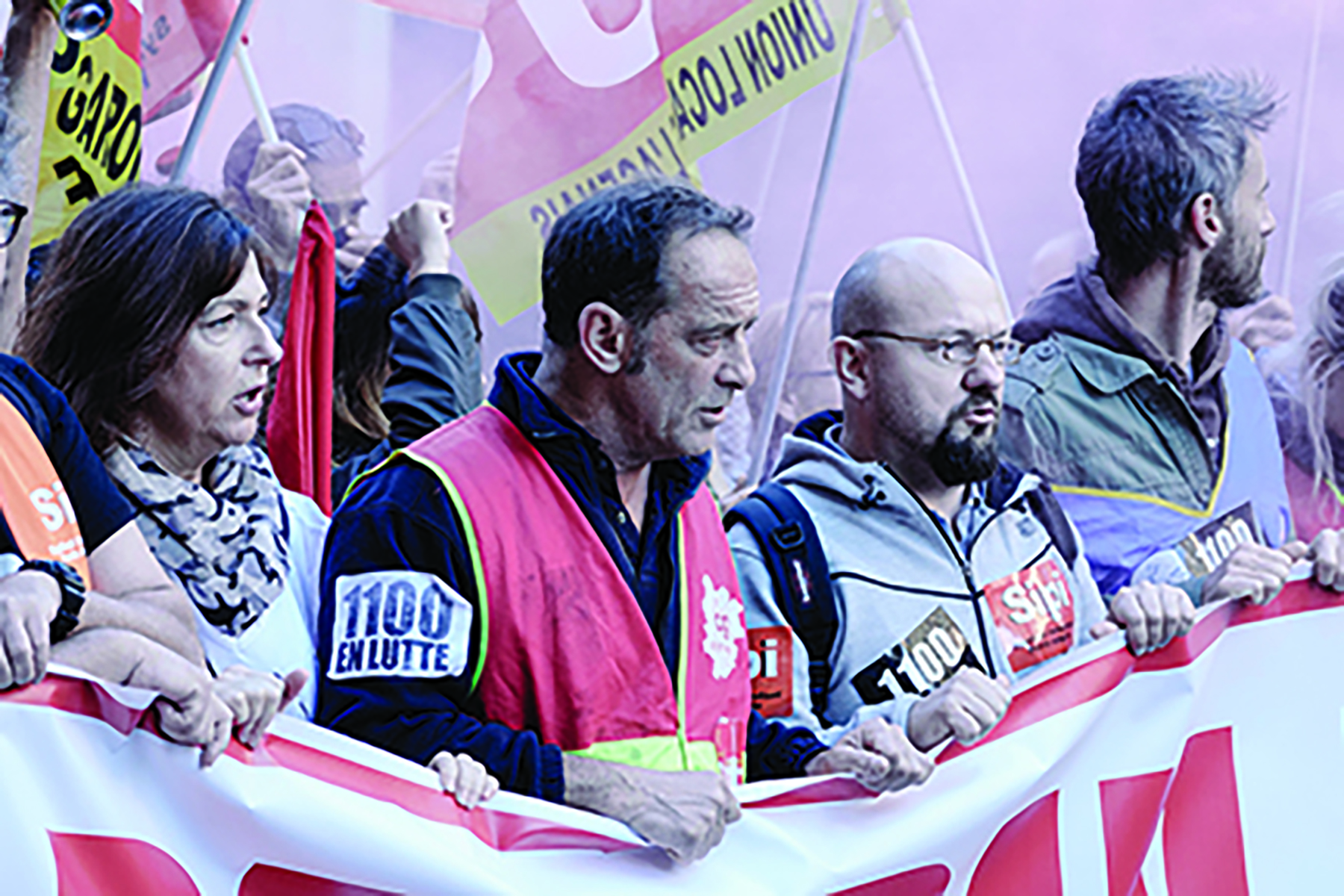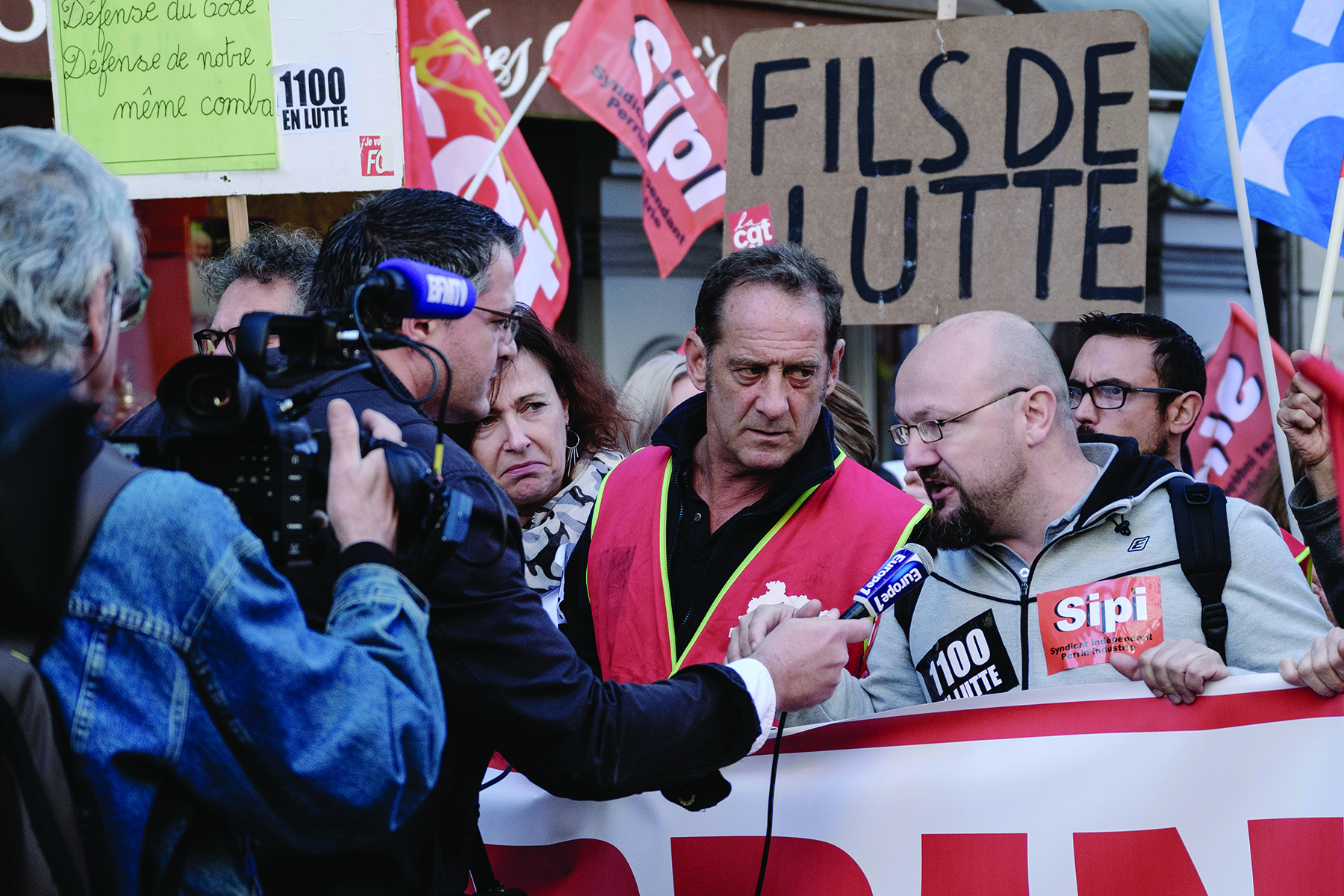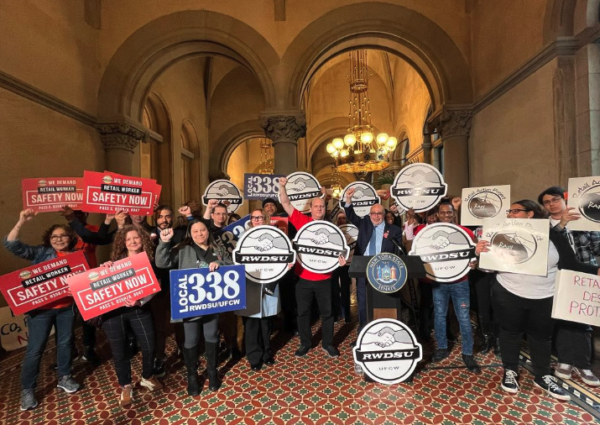
New York, NY – “At War” (En Guerre) is a gripping new French language movie about the struggles of trade unionists trying to save 1,100 jobs after the profitable factory where they work announces immediate plans to shut down. It opens Friday night, July 19, at the Village East Cinema on 2nd Avenue, and is the most authentic depiction of Labor’s condition to be found anywhere on this side of the Atlantic.
Below, “At War” (En Guerre) director Stéphane Brizé talks to LaborPress about what made him make the film, its relation to France’s “Yellow Vest” movement, the struggle of working people the world over — and the power of movies to aid in that fight.
LP Please talk about the genesis of the film in context to the Yellow Vest movement in France, and in relation to the global struggle of workers worldwide.
SB Long before the idea of this film, there were some spectacular images that appeared in the French media in October of 2015, and around the world: the aggression toward two executives of the Air France airline at the end of a meeting between the company management and the unions. We see two executives, their shirts torn, almost lynched by a hundred employees. After the shock, and the natural empathy for these two men, I asked myself, what could push workers to that stage of anger and violence? I do not believe that people wake up one morning with the idea to make that happen, for violence to emerge. It takes a whole chain of circumstances in advance for that to occur. The fiction within film makes us able to create that missing image, the one the media doesn’t show, the weeks preceding the explosion during which time the despair and anger of the workers grows and builds up. If this build up does explode, it will then permeate the media, but it was for me to rebuild the history of that moment.

As for the link between the film and the Yellow Vest movement, many here see it as the film predicting the movement. The film was released in France in May 2018, and the Yellow Vest movement started in October of the same year. Since it takes a little more than a year to write, shoot, and edit a film, this fiction was born in my mind at the beginning of 2017, almost two years before the Yellow Vest movement. To be honest, it’s not me who uniquely predicted this would happen, it was self-evident, it’s just that the politicians did not want to hear what was going on in our society. I only merged into fiction, something that already existed for some time. In the same way that a filmmaker does not invent anything when he tells the story of a couple who are torn apart – he feeds on reality – I am doing the same thing here. I take hold of social events in our world, and I make fiction of it. It’s my job to sense the vibrations of the world. That should also be the job of the politicians, but unfortunately, they only react after the explosion. And afterward, they have the indecency to stigmatize others when the explosion goes overboard, and exploit the situation in their favor.
LP What about the ability of movies to affect change or elevate social awareness?
SB Here, too, filmmakers have to be very humble. Which cinematic or literary work was able to change the world? I would have a hard time finding one. They have, on the other hand, the power of creating a memory. By creating a memory for society, a reference point for the past, we can prevent history from repeating itself. Film has the power – a good power – to participate in enlightening conscience. It’s the difference between driving in the middle of the night with your headlines on to avoid an accident, verses off. Maybe this is how we ultimately change the world.

LP When working people in the United States leave the theater after seeing “At War” (En Guerre) what do you hope they take away from the experience?
SB If I were asked to pick only one reason why I made the film, I would say that I made it to legitimize the worker’s anger. I don’t say “employee violence,” I say “anger.” The violence that sometimes arises during social conflicts is a tragic consequence: the workers do not think of it as a prerequisite. I want people to understand that violence is built on anger, and that anger is built on the hopelessness, which itself is born from a terrible feeling of humiliation. It’s an inexorable process. It’s the tragic experience that affects the principal character of the film, as well as the group of workers he represents. He is not a political agitator at the service of an ultra-left-wing ideology. He is a man who simply defends his work, and a certain idea of Man, saying with so much common sense that one cannot throw into the street the workers of a company that is profitable. He is dignified, only pointing to the absolute indecency of the excesses of capitalism.
Click here for “At War” (En Guerre) showtimes and tickets.


